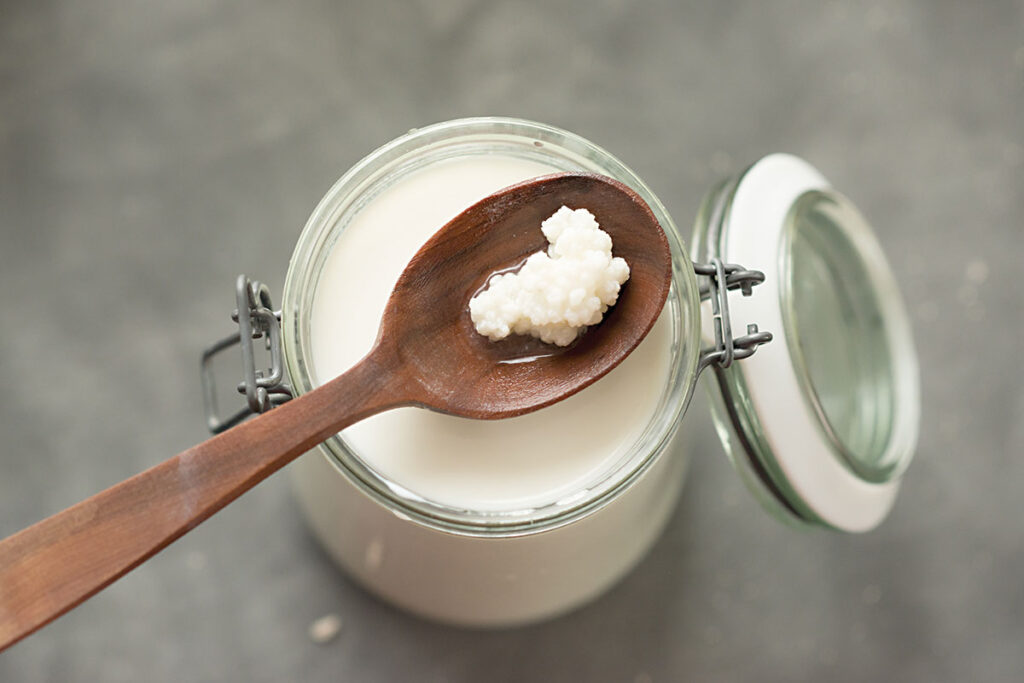Advertisement
Eating Right for IBD
Foods to fight gut inflammation

Living with inflammatory bowel disease (IBD) can involve a series of daily diet dilemmas; for example, wanting to sample a friend’s homemade ice cream while fearing the digestive consequences that are sure to follow.
Advertisement
What is IBD?
In IBD, a category that includes Crohn’s disease and ulcerative colitis (UC), some or all of the digestive tract is chronically inflamed. The debilitating symptoms of these diseases during a flare include frequent diarrhea, pain, fatigue, nausea, and weight loss that accompanies malnutrition.
Advertisement
How is IBD treated?
In addition to the usual treatments of drugs or surgery, individuals with IBD say that diet definitely matters. The problem is, what works for one person doesn’t always work for the next. A lacto-ovo vegetarian diet, for example, may seem to improve Crohn’s disease severity in one case, but may not lead to reliable improvements when tested in a larger cohort. So until now, medical doctors have not routinely endorsed a specific diet for IBD.
Advertisement
How do micro-organisms affect IBD?
Enter a new character in the IBD story: the microbiome. The friendly micro-organisms that make up the microbiome—including bacteria, archaea, and fungi—inhabit every part of the body, with a dense concentration in the digestive tract (gut).
Advertisement
A different microbiome in IBD
Scientists now know that those with Crohn’s and UC harbour a gut microbiome that looks different from healthy people; their communities have a lower diversity of bacteria and a unique pattern of viruses.
“Dysbiosis” is the name given to these disrupted gut communities. Although it’s not known whether gut dysbiosis actually causes IBD, research on the gut microbiome has sparked a new interest in the importance of diet in managing IBDs.
Advertisement
How do probiotics affect the gut?
Some components of the diet exert anti-inflammatory effects in the body by changing the gut microbiome. Take probiotics, for example. A recent animal study tracked live bacteria called Lactococcus lactis, commonly found in fermented milks and some cheeses, and found that they reduced inflammation in the colon.
Here’s how it worked: the bacteria beelined to the site of inflammation in their host’s intestine, produced beneficial enzymes once they found it, and then exploded to release the anti-inflammatory substances that improved the mouse’s symptoms.
While not all probiotics likely work in this dramatic way, other strains of bacteria modulate the gut microbiome in a way that calms the immune system and reduces inflammation. The bacteria living in foods such as yogurt and kefir, as well as fermented sauerkraut, kimchi, and pickles, can boost populations of bacteria important for health.
Studies show that supplementing with certain species of lactobacilli and bifidobacteria can help prevent pouchitis (a condition involving inflammation in the lining of the surgical pouch created to treat some patients with UC) and maintain remission from UC, but is not helpful in Crohn’s disease.
Advertisement
What role do prebiotics play?
Prebiotics, specific fibres found in foods such as bananas, onions, and flax meal, also modulate the gut microbiota. These foods potentially soothe inflammation by spurring production of immune-regulating short-chain fatty acids.
Advertisement
How do fats affect IBD?
Research has also found that not all dietary fats are the same when it comes to IBDs: the monounsaturated fats found in olive oil, for example, show beneficial effects on colitis, while polyunsaturated fats (omega-6 polyunsaturated fats in particular) induced inflammation.
Advertisement
Diets for IBD
So how do these findings add up to dietary recommendations? At least two comprehensive diets show promise in the context of IBD.
IBD anti-inflammatory diet
Recently, researchers have been looking at the inflammatory bowel disease anti-inflammatory diet (IBD-AID), developed at the University of Massachusetts with the goal of improving gut microbiota composition.
The IBD-AID restricts lactose, wheat, refined sugar, and corn in order to “starve out” bad bacteria. It aims to boost populations of good bacteria by including plenty of prebiotics, soluble fibre, and probiotics, and also includes the monounsaturated fats found in foods such as olive oil, avocado, and nuts.
In a 2014 pilot study of adults who followed the IBD-AID diet for at least four weeks, every subject experienced a decrease in disease activity and severity and discontinued at least one of their IBD medications. Evidence to date indicates this diet can be used for both Crohn’s and UC as an adjunct to other IBD treatments.
For more information about the IBD-AID, go to umassmed.edu and search for “IBD-AID reference.”
Low-FODMAP diet
The low-FODMAP (fermentable oligosaccharides, disaccharides, monosaccharides, and polyols) diet (developed at Monash University in Australia), more often studied in relation to irritable bowel syndrome, has recently shown promise for improving outcomes of IBD as well.
This diet limits short-chain carbohydrates, which the body does not readily absorb, and high-fibre foods that are fermented by colonic bacteria. The overall idea, similar to the popular specific carbohydrate diet (SCD), is that poor absorption of carbohydrates leads to bacterial overgrowth. Certain fruits, honey, sweeteners, dairy products, wheat, and legumes are disallowed, while juices, sugar, oats, and rice are allowed.
The low-FODMAP diet differs from the IBD-AID in its stance on prebiotics: in the low-FODMAP diet, prebiotic foods are avoided (despite their ability to foster friendly bacteria) because they may provoke gastrointestinal symptoms.
A systematic review of diets for IBD showed the low-FODMAP diet was therapeutically promising. IBD patients with poor results after surgery improved symptoms such as stool frequency and consistency after they adopted the diet. Eating low-FODMAP may be best for short-term interventions; more studies are needed on the effects of the diet over time.
For more information about the low-FODMAP diet, go to med.monash.edu and search for “low FODMAP diet.”
IBD cannot be cured by diet, but it’s becoming clear that some foods can manipulate the gut microbiota in ways that reduce inflammation leading to a reduction in disease activity and severity. In the future, measuring the unique signature of micro-organisms in an individual’s gut may replace the process of trial and error in developing personalized dietary recommendations for IBD.





